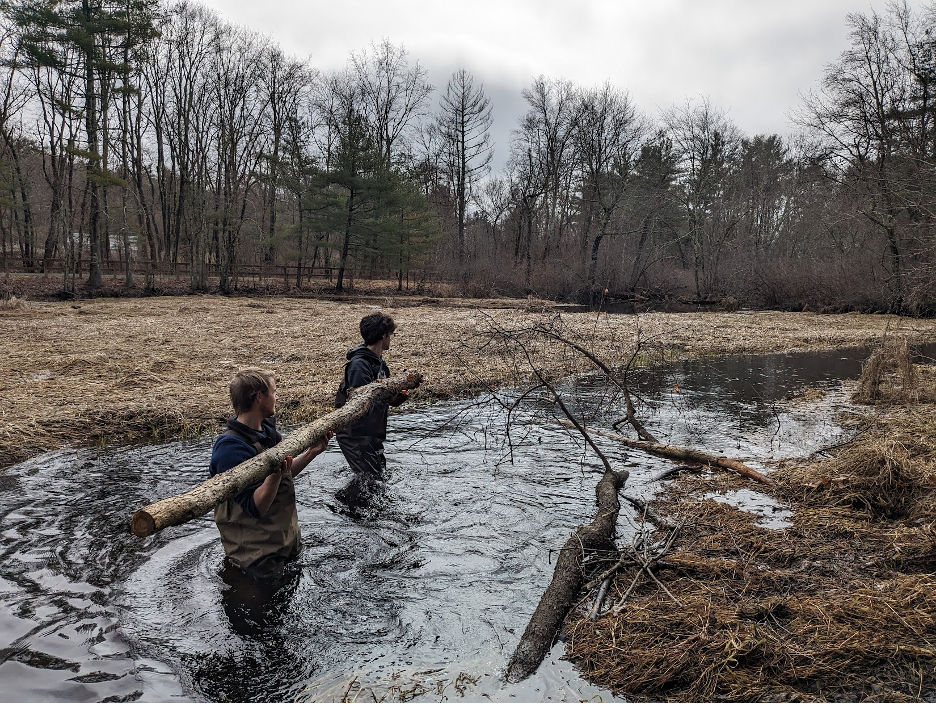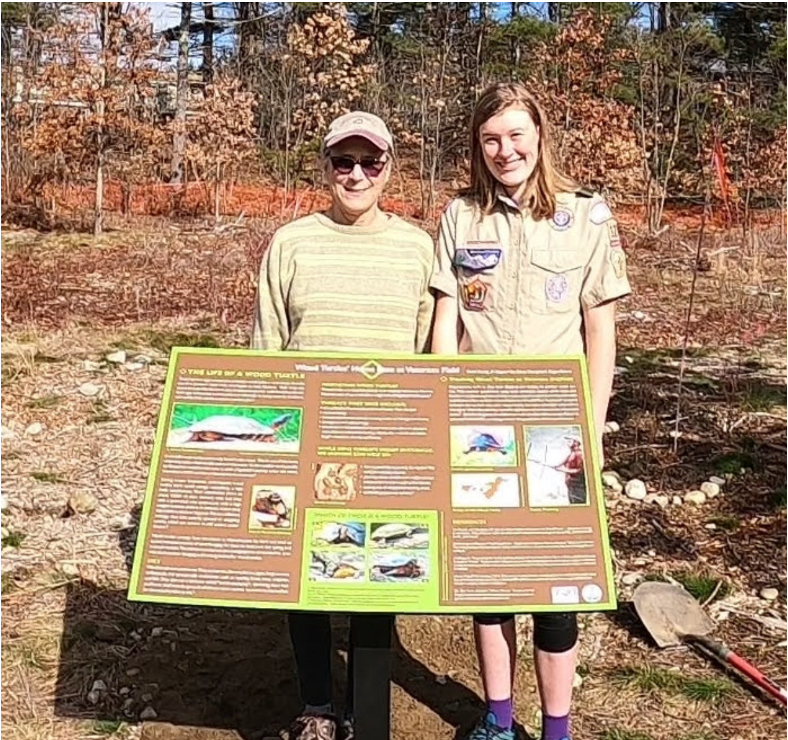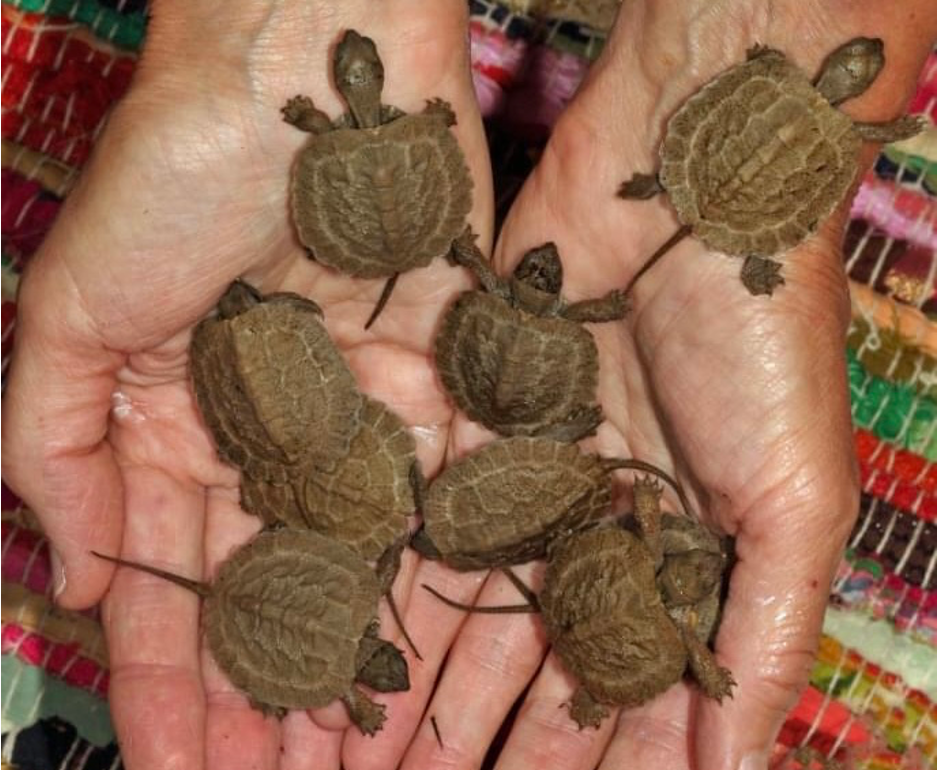On March 6, six volunteers joined Acton’s Land Stewardship Coordinator Ian Bergemann and Zoo New England (ZNE) Field Biologist Jimmy Welch to create habitat for threatened wood turtles, Glyptemys insculpta, along a brook in Acton. ZNE’s website describes the species as “once the most common freshwater turtle in eastern Massachusetts. Now wood turtles are listed as a species of Special Concern in Massachusetts.”

Welch and Dale Chayes, Land Stewardship Committee member and sawyer, prepared downed tree trunks to move into the brook while the rest of the volunteer crew collected large branches. The branches served to anchor the tree trunks that Welch and another volunteer carried into the brook. After two hours of work, three log jams that will provide habitat for the turtles had been constructed.
The collaboration between ZNE and the Town of Acton has been ongoing for about five years. The Natural Resources Division, now called the Conservation Division, began enhancement of nesting habitat along the brook embankment in the spring of 2021. As reported in the May 2021 edition of Acton’s Municipal Monthly, “Volunteers and staff removed turf and invasive plants to make the ground easier for female turtles to dig their nests.” Zoo New England biologists attached radio trackers on female turtles, enabling the staff to later collect eggs for offsite incubation and to raise hatchlings for about a year before releasing them back into the wild. This intervention gives the turtles a “head start,” allowing them to grow to a size less susceptible to predators. “Headstarts are mainly raised in local schools by students,” Welch explained. “We have programs to teach them about local conservation and threatened wildlife. We do also have a smaller number that are raised by volunteers or at the zoo.”
In early December of last year, Welch presented the plan to Acton’s Conservation Commission which has approval authority for work done in any of the town’s conservation lands. The commissioners were enthusiastic, and gave the green light for the project. Later this spring, additional work will be done farther upstream where several headstarts have been released. ZNE expects a grant from Mass Wildlife to support the planting of native Wild Senna shrubs, a state-endangered species, to give the turtles better brush cover from the predators in sections of the brook where such cover is sparse. The team also plans to plant reed canary grass in meadows along the brook.
This isn’t the first time funds have supported habitat improvement for Acton’s wood turtle population. In September of 2021, Anna Campbell of Acton’s BSA Troop 12, donated $800 she raised as part of her Eagle Scout Project for habitat improvement and for an educational panel she designed for installation near the brook.

The big question is whether these efforts will boost Acton’s wood turtle population. “With long lived and slow-maturing species, it is often the case that you don’t see immediate results,” Welch said. “This is why long-term monitoring and continued management efforts will be important to assess what conservation actions are successful in improving the population over time. One recent exciting technique we are trying is putting GPS tags on several of our wood turtles, which can give us more fine-scale information on habitat use and movement within their habitats.”

Alissa Nicol is a frequent contributor to The Acton Exchange.

